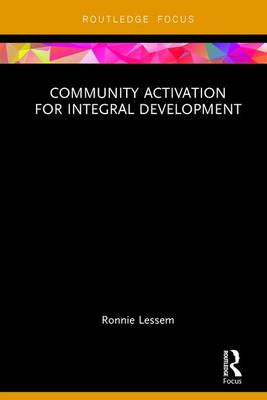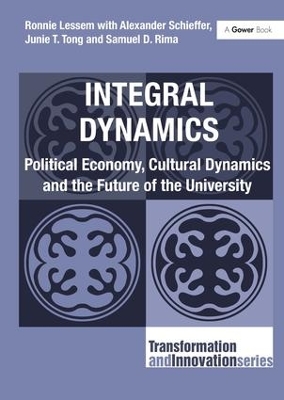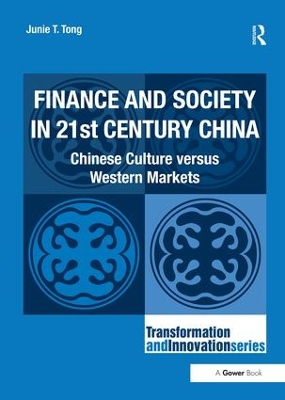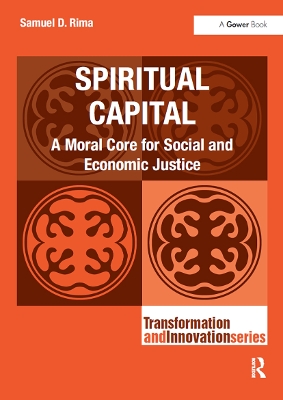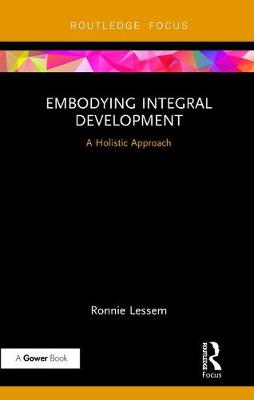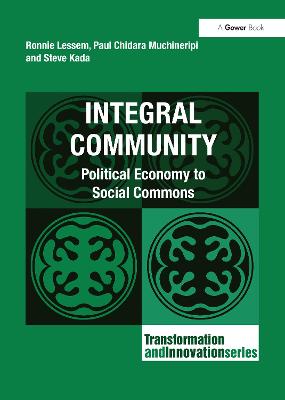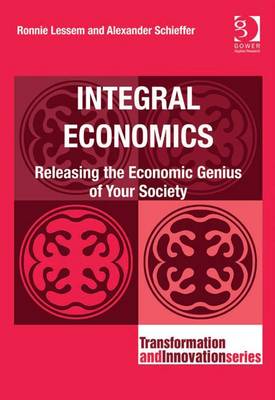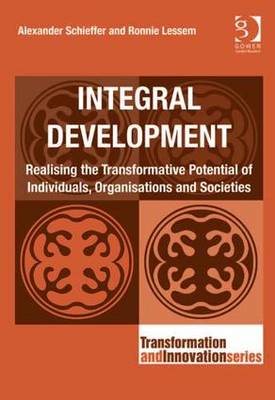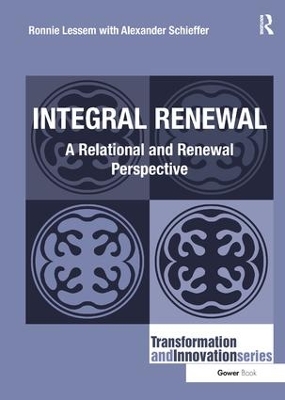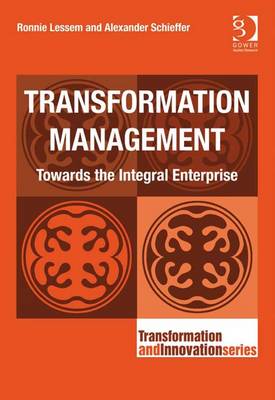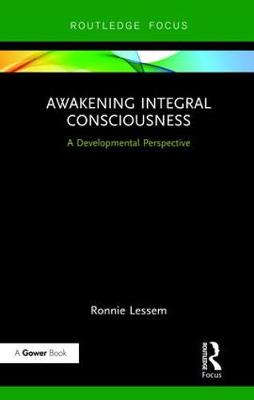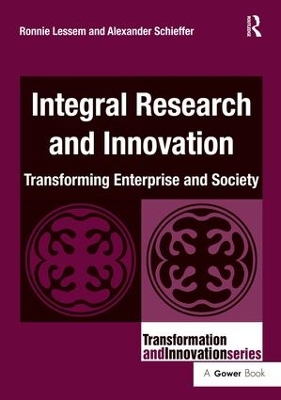Transformation and Innovation
12 total works
With a selection of case studies, this volume looks at where community activation can be found and explores how it could evolve and be of use in developing societies at large. In the process he addresses such topics as how to embed development in a particular society, how to generate social and economic solidarity, and how to generate wealth from pre-industrial and post-industrial networks. This book provides a guide for readers on how to build Community, within their organization-and-society from the ground up.
Integral Dynamics
by Professor Ronnie Lessem, Dr. Alexander Schieffer, Junie Therese Tong, and Samuel D. Rima
In this fourth and final volume of the CARE-ing for Integral Development series, Ronnie Lessem integrates all that has come before in terms of: Community activation; Awakening integral consciousness; and institutionalized Research. Here he focuses on individual and community development alongside that of the organization or society, and sets it in the context of an integral economy.
The four critical success factors identified in recognizing and releasing integral development aligned with CARE are:
- GROUNDING - linking up with and building upon existing local and global movements for socio-economic development;
- EMERGENCE - maintaining interconnected focus;
- NAVIGATING - locating and developing GENE-ius in a particular community/society;
- EFFECTING - committing to resolving an issue and identifying the most fertile development path.
Embodying Integral Development offers a comprehensive system of accreditation. Supported by examples and illustrations of CARE, this book makes a case for Integral Development as a whole. It argues that it is a qualitative means of self-assessment rather than a quantitative one, focused on engagement, immersion and interpretation, as well as evaluation, rather than empirical verification.
Integral Community
by Mr Paul Chidara Muchineripi, Professor Ronnie Lessem, and Steve Kada
Why on earth is economics perceived to come in only one or at best two different a-cultural if not a-moral guises? There are real, and many, alternatives to the economic mainstream. The trouble is, of course, that they are hidden from us. In Integral Economics Ronnie Lessem and Alexander Schieffer pave the way for a sustainable approach to economics, building on the richness of diverse economic approaches from all over the globe. By introducing the most evolved economic perspectives and bringing them into creative dialogue they argue that neither individual enterprises nor wider society will be transformed for the better without a new economic perspective. Here, they introduce a comprehensive framework based on the same 'Four Worlds' model that is applied to enterprise and research in their earlier works.
Given the richness of even mainstream economic theory reviewed in this book, let alone the variety of alternative approaches introduced, it is frustrating that policymakers and business practitioners are impoverished by a lack of apparent economic choice – between a seemingly failing capitalism and an already failed communism. The 'villains of the piece' in relation to this lack of choice are not so much the financial community and governments, though they do have much to answer, but the schools of economics and the business schools, that have created the very social ethos, the philosophical principles, and the mathematical models, that influence events.
Integral Economics is partly addressed to academics and students in those very schools, who have either realized the error of their ways, or, less dramatically, are curious to explore whether our businesses and communities could be run in a different way. It will be welcomed by informed senior practitioners, eager to understand the current rethink of economic theory and practice and to discover how to position themselves, their organizations, and their society within a new framework.
Integral Development
by Dr. Alexander Schieffer and Professor Ronnie Lessem
Transformation Management
by Professor Ronnie Lessem and Dr. Alexander Schieffer
The concept of transformation has long been known to the sciences and has been around in the popular vocabulary for several decades. Because it has never been fully developed as a managed process and applied to our organizations, the way in which we have been trying to deal with the complex issues we face today is looking increasingly inadequate.
Transformation management, argue the authors of this inspirational book, now provides the opportunity for the application of the first significant world-wide innovation in the way we manage since Drucker put management itself on the map in the 1950s. In a book that draws on seminal theses and practical examples from the four corners of the world, Ronnie Lessem and Alexander Schieffer provide leaders, students of leadership, managers and change agents with a trans-culturally tested, integrated approach to leadership and management.
Only through a redefinition of what leadership, management and entrepreneurship amount to, say the authors, can organizations be transformed into sustainable enterprises capable of dealing with the burning issues of our time. Leaders are coming to realise that it is no longer possible for organizations to operate in any sort of isolation from the society and the wider world in which they exist, but paying lip service to notions of either social responsibility or globality is not good enough. From this indispensable book, those whose enterprises are to have any hope of becoming authentically socially responsible or authentically global will learn to understand and activate the process that dynamically links any organization with the society in which it is embedded and that links the local with the global.
The practice of transformation management is about creating real value... for organizations, people, and society. This book, from the Transformation and Innovation Series, makes that practice possible.
This is the second of four volumes in the CARE-ing for Integral Development series, focused on CARE: Community activation, Awakening consciousness, innovation driven institutionalized Research and transformative Education. In this book, the author focuses on ways and means of developing, in an explicitly integral way, a particular organization or society, one in relation to another, locally-globally, building on prior, local community activation. He draws on two decades of experience and illustrates how such an awakening of integral consciousness can run alongside innovation driven institutionalized research and transformative education, as well as community activation, at undergraduate and post-graduate levels. In the process he addresses such topics as how to embed development in a particular society locally, how in relation to the rest of the world globally, as well as how to consciously evolve as an individual, organization or society, as such, from one particular developmental perspective – southern (relational), eastern (renewal) or north/western (reasoned/realization) – or another.
The overall integral approach, or rhythm that the author draws upon, and has used in the field for the past decade, is that of recognizing and releasing what he terms GENE-ius, through local Grounding, local-global Emergence, newly global Navigation and ultimately global-local Effect, encompassing nature, culture, technology and enterprise. Moreover, he offers a body of integral theory that has been developed in twelve separate volumes, related to different aspects of integral development.
This book on awakening integral and developmental consciousness – from an African, Asian or Euro/American perspective – is unique. Moreover, and specifically as such, the author offers an alternately relational ("southern"), renewal ("eastern") and reasoned ("north-western") perspective on such development.
